Water: a growing global challenge
The world faces an unprecedented water crisis with multiple interconnected challenges. Global water demand is projected toincrease by more than 50% by 2050, while half of the world's population already faces water scarcity. Climate change is intensifying these challenges through more frequent devastating weather events, with drought alone costing $300 billion annually. Water quality is also deteriorating, with over 50% of European rivers exceeding safety standards for pollutants. .
The economic impact is severe - water-scarce regions could lose 6% of GDP by 2050. This complex situation demands urgent, innovative, and affordable solutions to secure our water future.1 More than ever, the need for a key actor in sustainable solutions including sustainable desalination is needed.

Veolia leads the way toward sustainable desalination worldwide
Faced with the initial challenges of desalination - high production costs, high energy intensity and impact on biodiversity - innovation has transformed this technology into a particularly relevant solution: more reliable, more accessible and more sustainable, with energy consumption reduced by a factor of five and minimized environmental impact. This evolution addresses climate change challenges and offers a promising alternative for the 80% of the world's population living near seas, especially when traditional solutions prove insufficient.
With more than 50 years of experience in developing sustainable desalination projects around the world, and references spanning over 2,300 plants, Veolia leads the way to help its clients addressing water scarcity challenges every single day. Having built 18% of the world's installed desalination capacity, including 19% in the Middle East2, the Group provides innovative and sustainable desalination solutions to address growing water scarcity challenges worldwide.
WHY CHOOSE DESALINATION?
Desalination stands as a vital solution in the fight against water scarcity, particularly for coastal regions. Its effectiveness is proven in countries like Oman, where it provides 86% of potable water. As part of an integrated water management approach, desalination complements other strategies such as consumption reduction, infrastructure improvement, and treated wastewater reuse. While some regions like France (<1%) and the US (4%) currently use minimal desalination, its adoption is growing worldwide as an essential tool for ensuring sustainable water supply.3
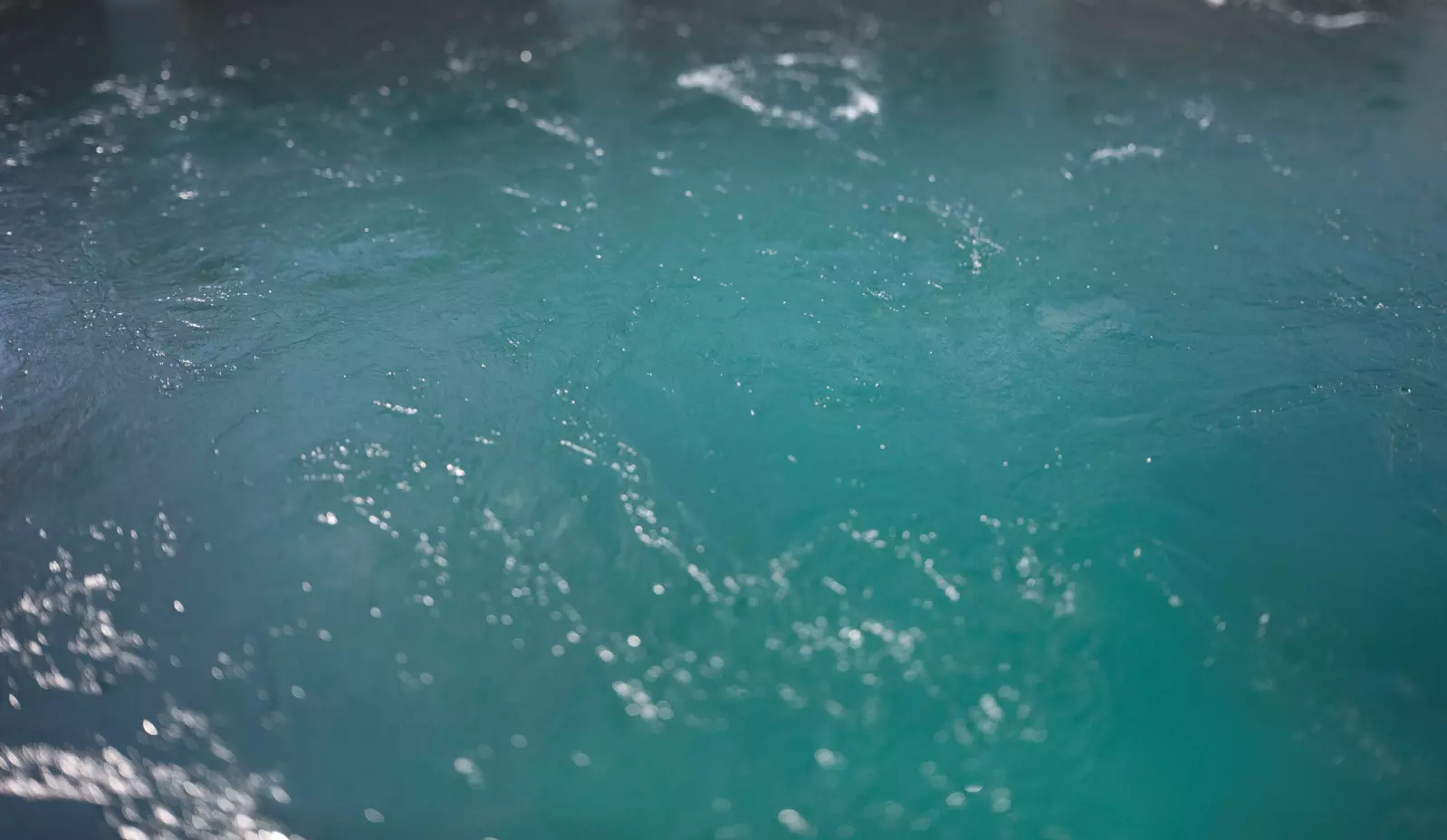
Veolia’s ambitions in sustainable desalination
Veolia's 2030 desalination strategy demonstrates the company's commitment to maintaining its position as a global leader in water desalination. With a clear focus on growth, Veolia aims to maintain its significant 18% market share in global desalination capacity while simultaneously doubling its Operations & Maintenance capacity. This ambitious strategy reflects both Veolia's long-term vision and its dedication to addressing growing global water scarcity challenges through sustainable desalination solutions.
Veolia, the global champion in water services
#1 worldwide in water services
#1 worldwide in water technologies
Towards Net Zero Water
+2bn m3 water saved in 2030
13 millions m3 of water desalinated each day
by Veolia in the world
Veolia, a global leader in desalination
108 countries where the Group is present
+2,300 operated by Veolia
in desalination worldwide
18% of global installed desalination capacity built
with Veolia’s technologies
+50 years experience in desalination
For more than 50 years, our commitment to maintaining exceptional operational and environmental standards has driven our leadership in desalination, and our innovations have enabled crucial energy savings while reducing the environmental solutions of the last-resort solutions.

Veolia: sustainable desalination projects
Australia : Sydney desalination plant
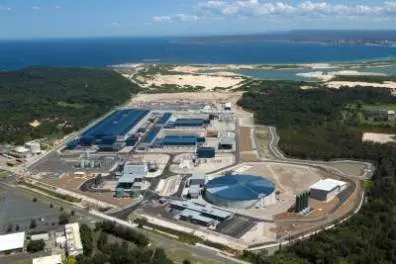
Veolia has been operating Sydney's major desalination facility since 2009 through a 20-year operation and maintenance contract.
This state-of-the-art plant produces 250,000 m³ of potable water daily using Reverse Osmosis technology,providing 15% of Sydney's total water supply.
This facility demonstrates Veolia's long-term commitment and expertise in delivering essential water infrastructure for major metropolitan areas.
Europe: Palma De Mallorca and Cornwall desalination plants
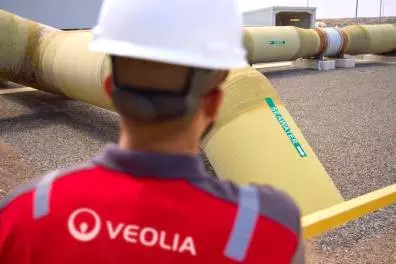
Veolia operates significant desalination facilities across Europe, with notable installations in Spain and the United Kingdom.
In the Balearic Islands, the Bahia de Palma facility, Veolia's largest in Spain, has been producing 64,800 m³ of drinking water daily since 1999 through nine reverse osmosis lines, serving as a vital water supply for the region.
In Cornwall, England, Veolia manages an unexpected but crucial seawater desalination plant, generating 20,000 m³ of water daily, serving both industrial needs and 300,000 residents in an increasingly water-stressed area.
Oman: Sur desalination plant
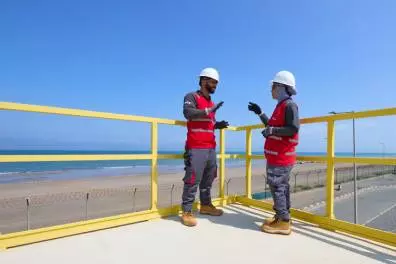
Veolia operates two cutting-edge desalination plants in Sur, Oman, producing produisant 131,000 m³ of potable water daily through 2036.
These facilities showcase Veolia's advanced Reverse Osmosis technologies, featuring smart membranes, Barrel pilot systems, and the world's largest beachwell supply system.
As a pioneer in sustainable desalination, the site stands out as the region's largest solar-powered desalination plant, operating on 100% solar energy during daylight hours.
FOCUS | Veolia, solidly anchored in the Middle-East
Revenue expected to double by
of drinking water in the Sultanate of Oman comes from seawater desalination
million people supplied with desalinated water by Veolia in the Middle East
growth since 2019
Veolia enters the Middle Eastern market
reduction in energy consumption thanks to new Veolia technologies
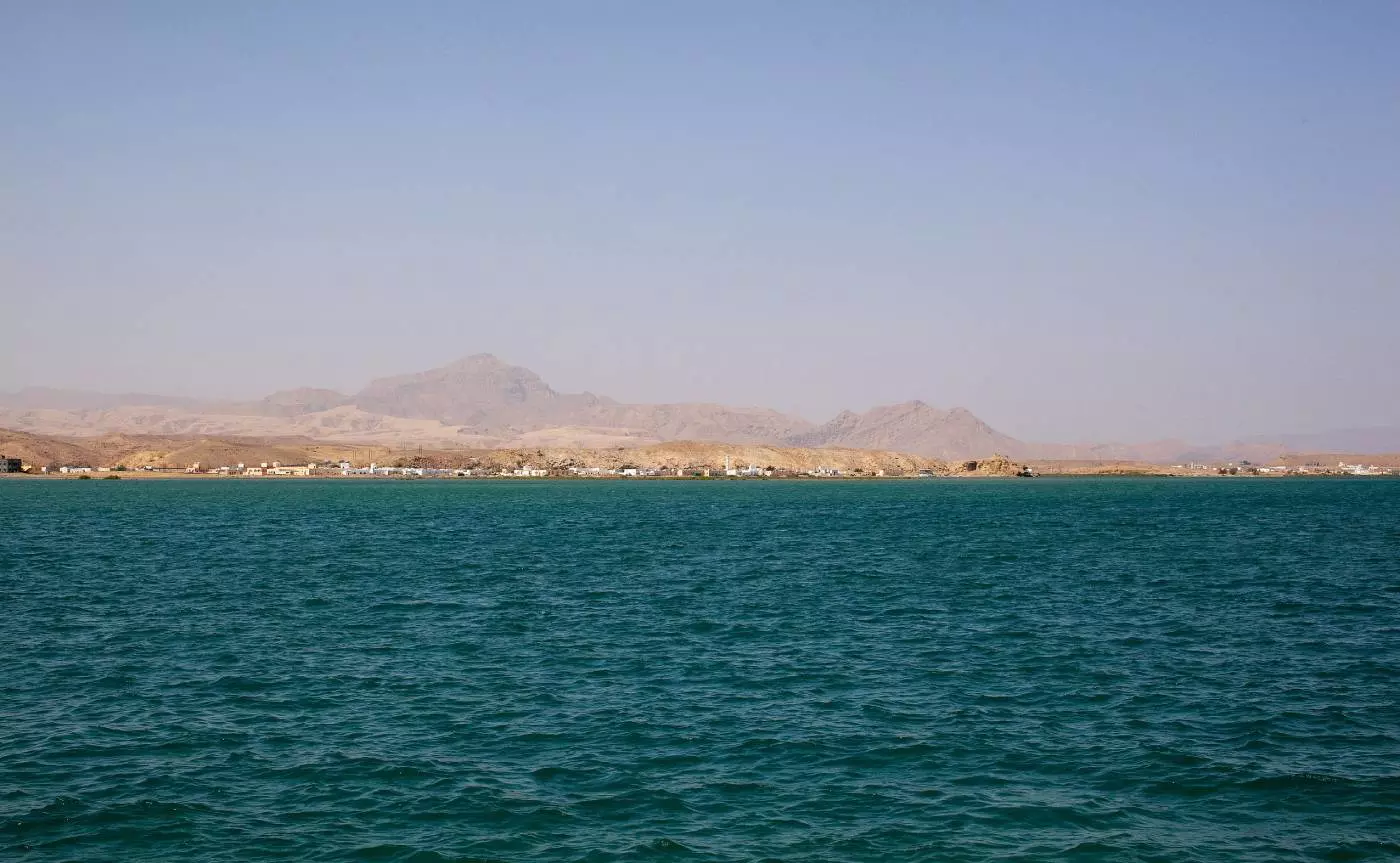
The Barrel™ : at the heart of a new sustainable, affordable and scalable offer
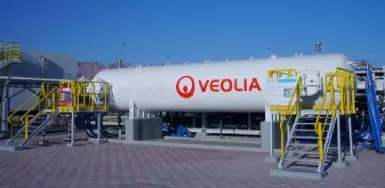
The Sur desalination plant in the Sultanate of Oman is home to a major technological innovation developed by Veolia: the Barrel™. A cylindrical vessel 10 meters long and 2 meters in diameter houses membranes and optimizes the reverse osmosis water filtration process. Capable of producing 5,000 cubic meters of water a day, the BarrelTM uses digital technologies to track membrane performance. This disruptive technology delivers significant advantages – a 3% to 5% reduction in the average cost of a desalination plant, energy savings of 1.5%, and a 25% smaller footprint than conventional systems – and gives Veolia a genuine competitive advantage in the booming desalination market. The Barrel™ marks a major step forward in terms of optimizing the performance and lowering the cost of desalination plants.
New challenges worldwide: desalination technologies applied to conventional water treatment:
While desalination represents a powerful solution for water-stressed regions, Veolia's approach is to develop tailored combinations of solutions - including wastewater reuse, efficiency improvements, specific pollutants’ treatments and smart distribution - adapted to each territory's specific challenges, resources, and needs, ensuring the most sustainable and cost-effective water management strategy. Discover two examples below :
Wastewater reuse
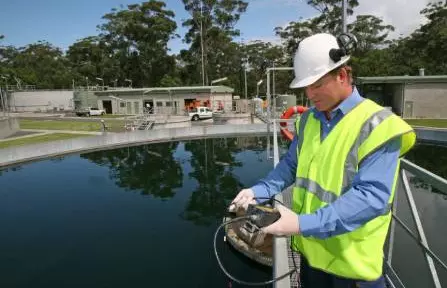
In Vendée (France), Veolia is pioneering France's first direct potable reuse plant. The Jourdain facility will provide 3.0 M.m³ of reuse capacity by 2027, serving 60,000 people and helping address an anticipated water deficit of 8 million m³.
This innovative project applies desalination technology through nanofiltration and low-pressure reverse osmosis Barrel™ systems to ensure safe drinking water production.
Micropollutants removal

In the Paris region (France), Veolia's SEDIF contract demonstrates another innovative application of desalination technology. Using modular dual-stage membrane filtration, the system combines nanofiltration and low-pressure reverse osmosis to effectively remove micropollutants and endocrine disruptors.
This flagship project includes ten worldwide-first innovations and emphasizes water service decarbonization through enhanced efficiency and low-carbon energy solutions.

Sustainable desalination Presentation
Download the presentation in:
GreenUp accelerates ecological transformation
Veolia's 24-27 strategic program focuses on delivering essential water, waste, and energy services worldwide, with a €2 billion investment plan targeting three growth boosters: bioenergy and energy efficiency, water technologies, and hazardous waste treatment, all aimed at accelerating ecological transformation through decarbonization, depollution, and resource regeneration by 2030.
Find out more about
Discover the desalination of seawater with "How and why at a Glance"
Read Veolia’s new Planet magazine focusing on sustainable desalination
1 United Nation agencies.
2 Source: Estimate based on GWI projects database
3 Sources: Ministère de la Transition Écologique, Observatoire des services publics d'eau et d'assainissement, Observatoire national SISPEA, Asociación Española de Abastecimientos de Agua y Saneamiento (AEAS), Aigües de Barcelona, Asociación Española de Desalación y Reutilización (AEDyR), International Desalination Association, US Environmental Protection Agency, NYC Environmental Protection, Oman Public Authority for Electricity and Water (PAEW), Jordan Ministry of Water and Irrigation





